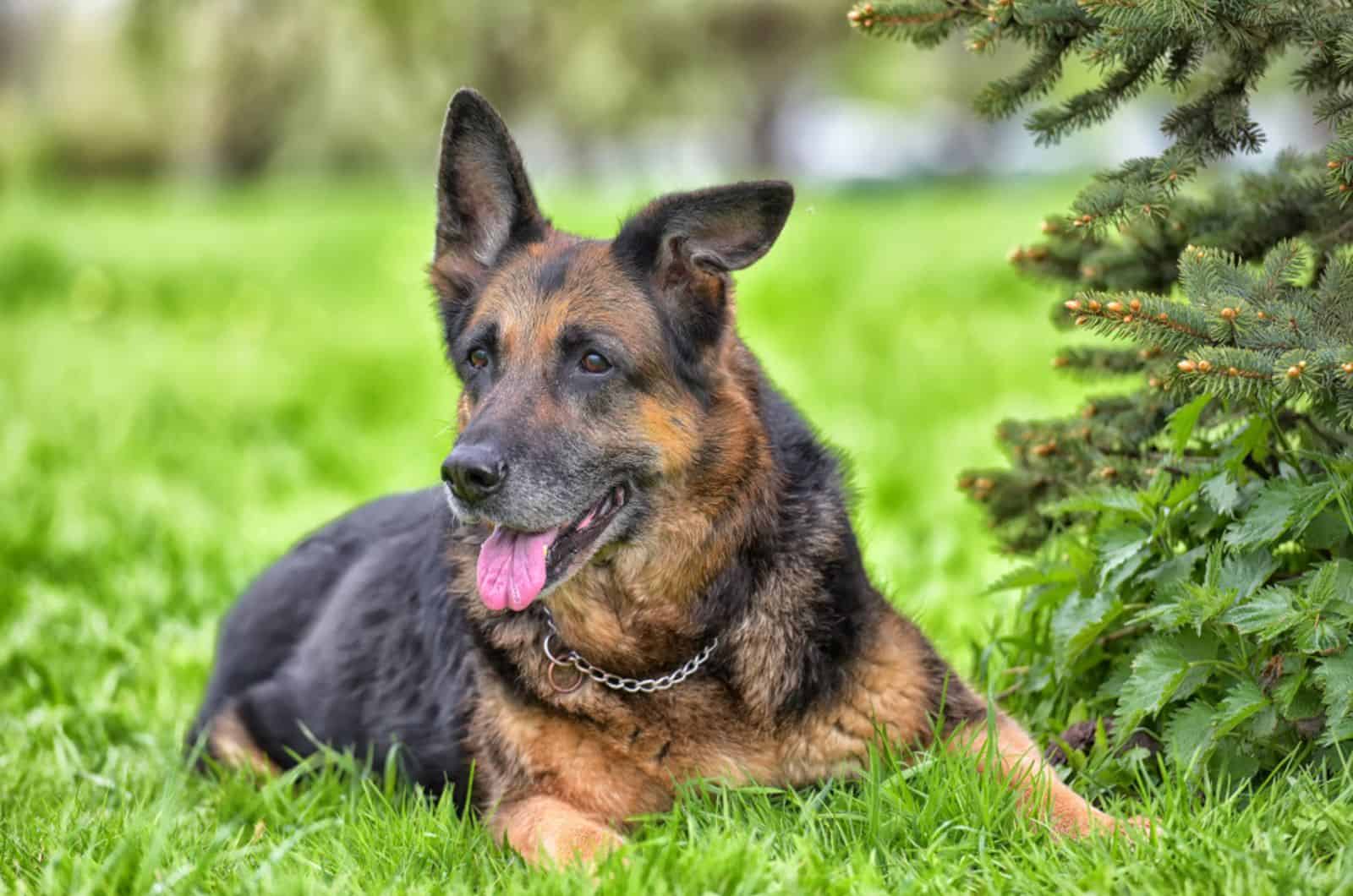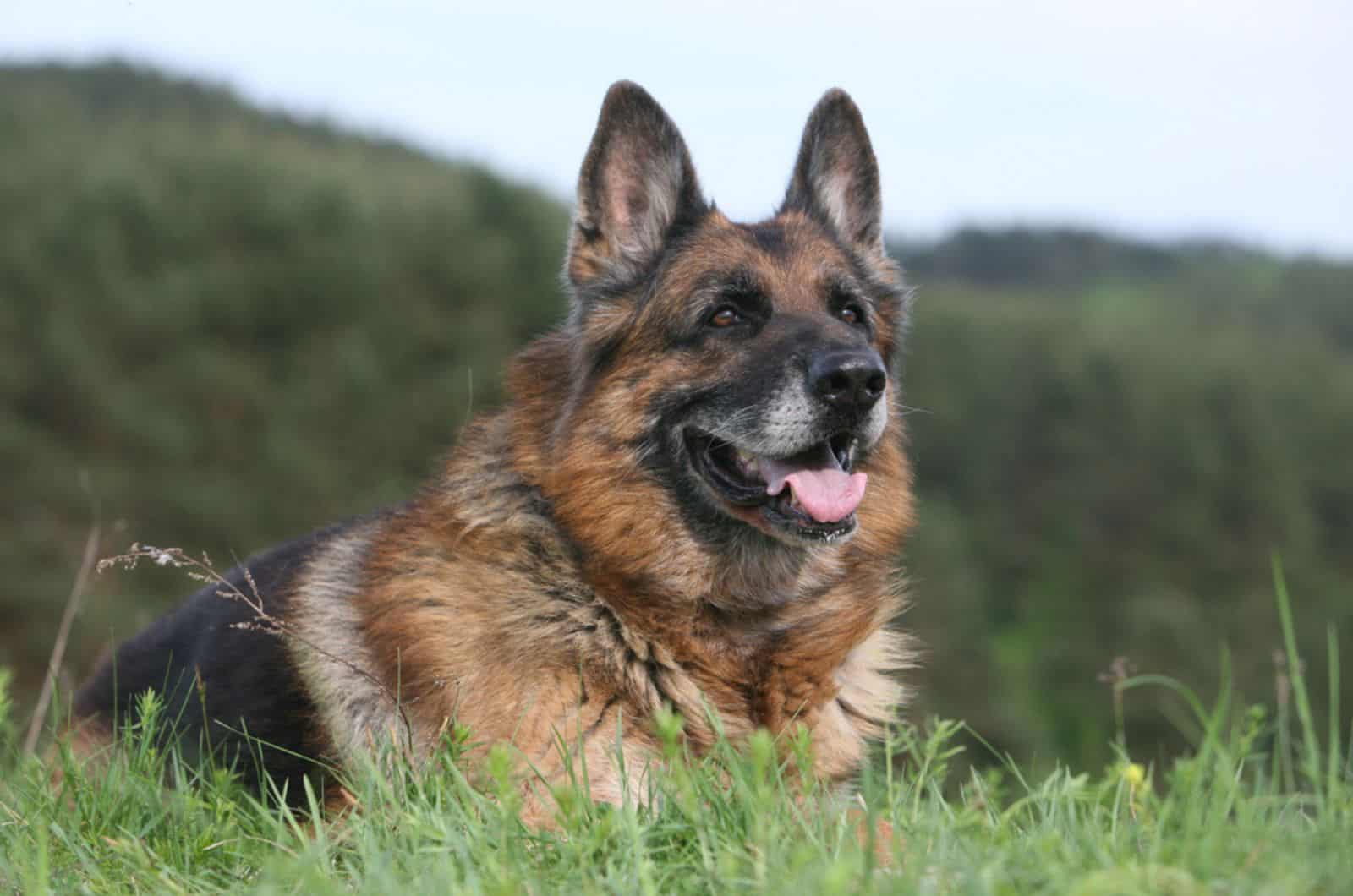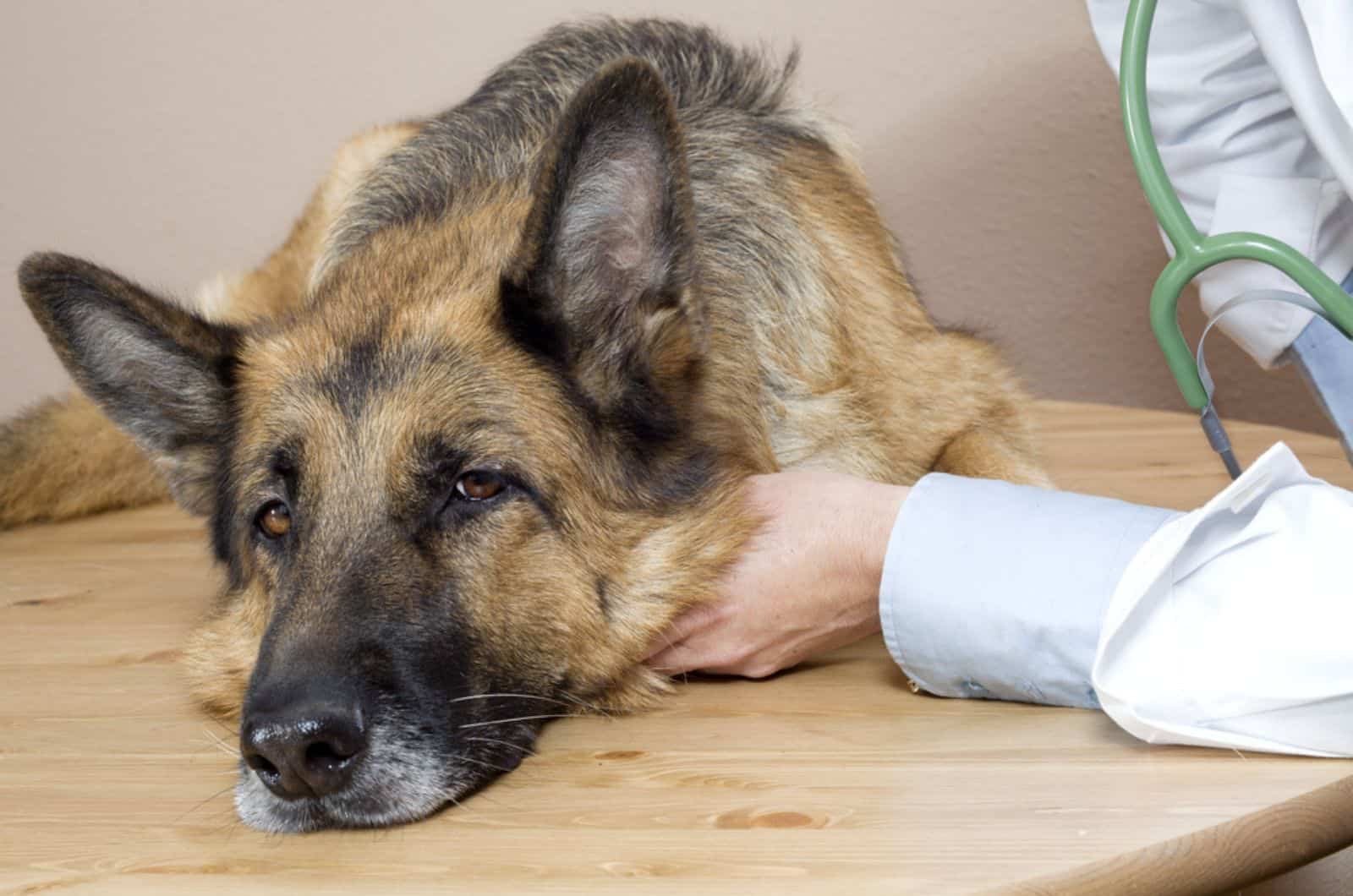Everyone knows that the German Shepherd is one of the most sought after dog breeds out there, but there’s one glaring problem with the breed and that’s the German Shepherd lifespan, though what leads up to it being that short?
Well, a number of things, actually, one of the biggest causes being the German Shepherd lifespan itself as well as a number of health issues, but things like genetics and the dog’s diet play a big part in it too.
Some are positive, some are negative, and some we can influence, while others are there to stay, at least until science advances further.
So let’s find out what these various factors are and how you can influence them in order to improve your German Shepherd’s life expectancy and overall quality of life, and whether it’s worth the trouble or if you should opt for a different dog.
How Long Is The German Shepherd Lifespan?

The lifespan of a German Shepherd ranges anywhere from 9 to 13 years with the average often leaning more toward 9 or 10 years of age.
It’s a relatively common thing with large dog breeds to not go to the expected 15 as their own weight and size are often their undoing, they, supposedly, age at a faster rate since they exert their body more to do their daily activities.
While that may sound confusing, it relates more to the fact that their body wears out quicker from doing more work, including muscles, bones and vital organs altogether.
The size also affects their center of mass which puts extra strain on their spine, leading to more issues relating to their posture and leaving them more prone to further health issues involving the spine.
But that’s in a more general sense, there are other aspects which affect this too.
What Other Things Can Affect A German Shepherd’s Life Expectancy?

There are three determining factors that can affect a dog’s life expectancy in general, not just the German Shepherd.
They are as follows:
Genetics
Genes are the common culprits of both good and bad health in dogs. They determine everything for them, from the color of their fur, how big they’ll grow to be overall, the speed of their metabolism and their overall health.
Genes will determine the allergies and how prone to a specific disease one dog is going to be.
Unfortunately, there’s very little that can be done regarding it outside of treating the problems caused by genetics as they come and go.
Some will be manageable, while others may prove to be a severe detriment to your dog’s quality of life and overall lifespan.
Their Diet
What a dog eats can greatly impact his health, and eating healthy will help improve that balance.
Two distinct problems come from dieting in particular, obesity and malnourishment, both equally dangerous in their own right and are just the foundation for a plethora of other potential issues that may arise.
Obesity will increase the likelihood of heart disease and the stress on your dog’s bones, causing further bone and joint related problems, while malnourishment will cause problems with growth and overall health.
In order to get the best out of your dog’s food, you’ll need to have some of these in his food:
Quality Protein
A good protein is the foundation of every piece of dog food, and chicken and beef tend to be the best ones to go for with the other alternatives being that of turkey, lamb or fish.
Fiber
Something to make all that protein go down smoother is always good to have paired with it, a source of fiber, be it rice, sweet potatoes, peas or similar.
A Healthy Protein To Fat Ratio
A healthy protein to fat ratio for GSD pups is around 22% protein to 8% fat while adults enjoy an 18% to 5% ratio.
Omega 3 Fatty Acids
Other than that, you’ll want to make sure that the food contains omega-3 and 6 fatty acids which help keep your dog’s fur nice and shiny and improve your dog’s overall immune system.
Probiotics
Probiotics are core for the nourishment of a dog’s healthy gut bacteria which are responsible for both better digestion and a stronger immune system.
DHA and EPA
DHA and EPA are particularly important in puppies as they help develop and maintain their cognitive skills.
Calcium And Phosphorus
Calcium and phosphorus are important too as they help with proper bone and cartilage growth, particularly for large dog breeds like the GSD
Glucosamine And Chondroitin
Aside from those, you also want to include some chondroitin and glucosamine which help maintain bone and joint health, key components in helping delay any potential issues regarding hip and elbow dysplasia, among other bone related problems.
Their Level Of Exercise
The healthy way to control obesity while attaining some muscle is through exercise, and GSD’s need plenty of it.
So, if you’re looking to extend your German Shepherd’s lifespan, you’ll need to get him around 2 hours of moderate exercise daily through a mix of walks and play.
Read More: Can German Shepherds Live In Apartments? 9 Things To Know
Health Issues

While the German Shepherd is often considered one of the more popular dogs, that doesn’t mean that they’re perfect in every way.
GSDs in particular have a number of health issues one needs to be wary of which can affect their lifespan in the long run.
Here are some of the more common ones you ought to be on the lookout for:
Elbow And Hip dysplasia
The first issues that you’re likely to encounter are hip and elbow dysplasia, a problem where the ball and the socket of the joints get worn out due to friction and the former falls out of the latter, dislodging itself and leading to a great deal of pain for the dog.
It’s not a condition that can be cured, only whose chances of occurrence can be minimized so that it happens later on in life or not at all.
This way you’ll at least spare them the discomfort that comes along with it.
Pain medication can help, but keeping your dog at a healthy weight is the best method of prevention as it removes the extra stress on the joints themselves.
Bloat
Another, relatively common issue with most any dog, is bloat, a condition that happens due to the stomach twisting in on itself after a severe distension thanks to improper contraction.
This happens either due to eating directly after an exercise or not pacing oneself while eating.
It is as bad as it sounds too, with the contents of the stomach ending up trapped inside, whether they’re food, liquid or gas, but that’s not even the worst part.
Having the stomach twist like that can and will restrict blood flow to surrounding organs which can get real bad real fast.
If you notice your dog acting restless with a tense or clearly distended belly, or even dry heaving, take him to a vet immediately.
Despite being a very dire condition, it’s, thankfully, reversible, and the sooner you get him to a vet, the less likely the chance of any permanent damage will be after the procedure.
Degenerative Myelopathy
A pretty serious, albeit non fatal condition that’s inherent in every GSD.
Thankfully, it mostly happens in their twilight years, so there’s a good chance that it can be avoided, but it’s still a risk you should be aware of.
Degenerative Myelopathy is a condition that causes a progressive lack of motor function in a dog’s hind legs at the start, and can extend to his forelegs too if allowed time to progress.
It also involves incontinence at a certain point, which can lead to a real messy house unless you deal with it properly.
The early stages can be solved through the use of a doggy wheelchair of some kind, but the late stage form of it usually leads to the dog being put down for his own good.
Unfortunately, there is no cure, though, much like with hip and elbow dysplasia, you can potentially delay it or minimize the risk of it occurring through physical therapy.
Dilated Cardiomyopathy
Finally, one of the more fatal issues that thankfully isn’t all too common with the German Shepherd, but is still more likely to happen than in a great number of other dogs.
It’s a condition where the heart muscle starts to degenerate and grow larger due to the increased pressure inside of it.
The condition can develop rapidly, and is often fatal.
There are treatments for it, but proper diagnosis needs to be done to choose the right one, but even with that, the dog will only live for a few months at best.
In Conclusion
The German Shepherd lifespan is certainly not the lengthiest, but it is flexible and can easily be extended through proper dieting, exercise and frequent checkups at the vet.
This allows you to spot any problematic health issues early and act in time to hopefully prevent them from developing into more severe conditions.
Other than that, be sure to provide your dog with lots of love and with as stress free a life as you can. Until next time, pet parents.
RELATED LINKS:
